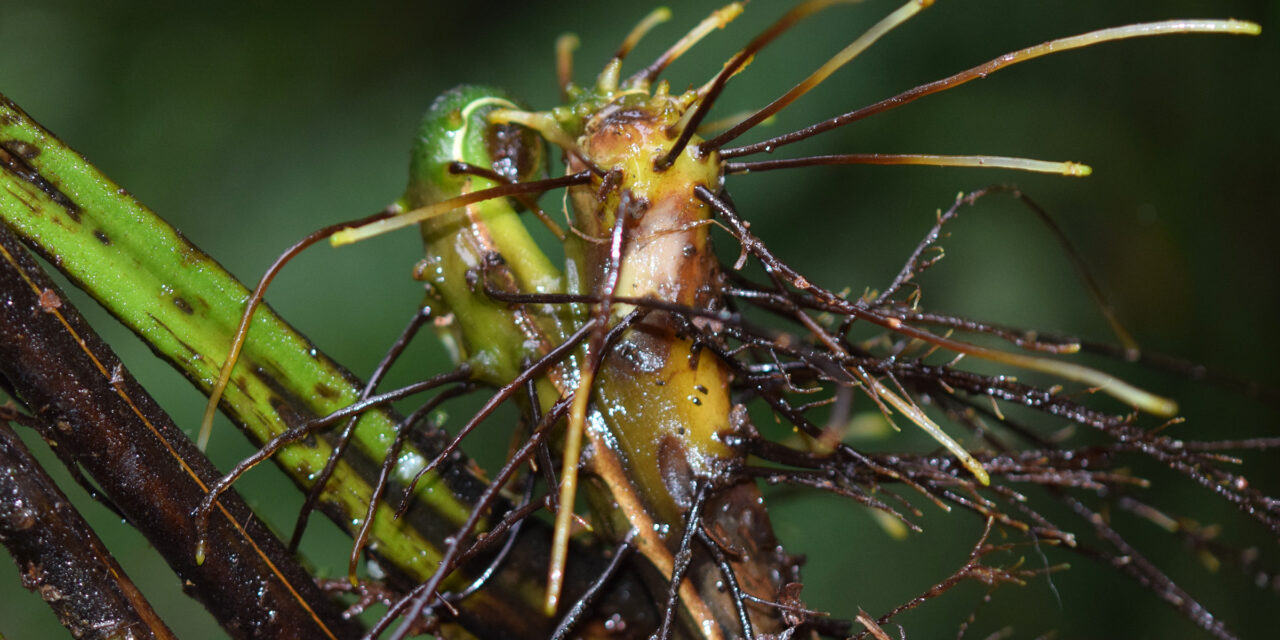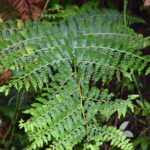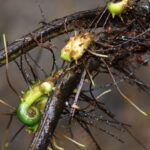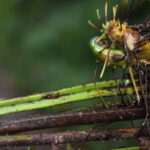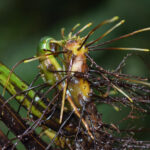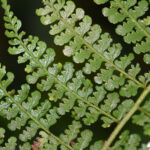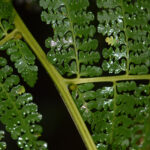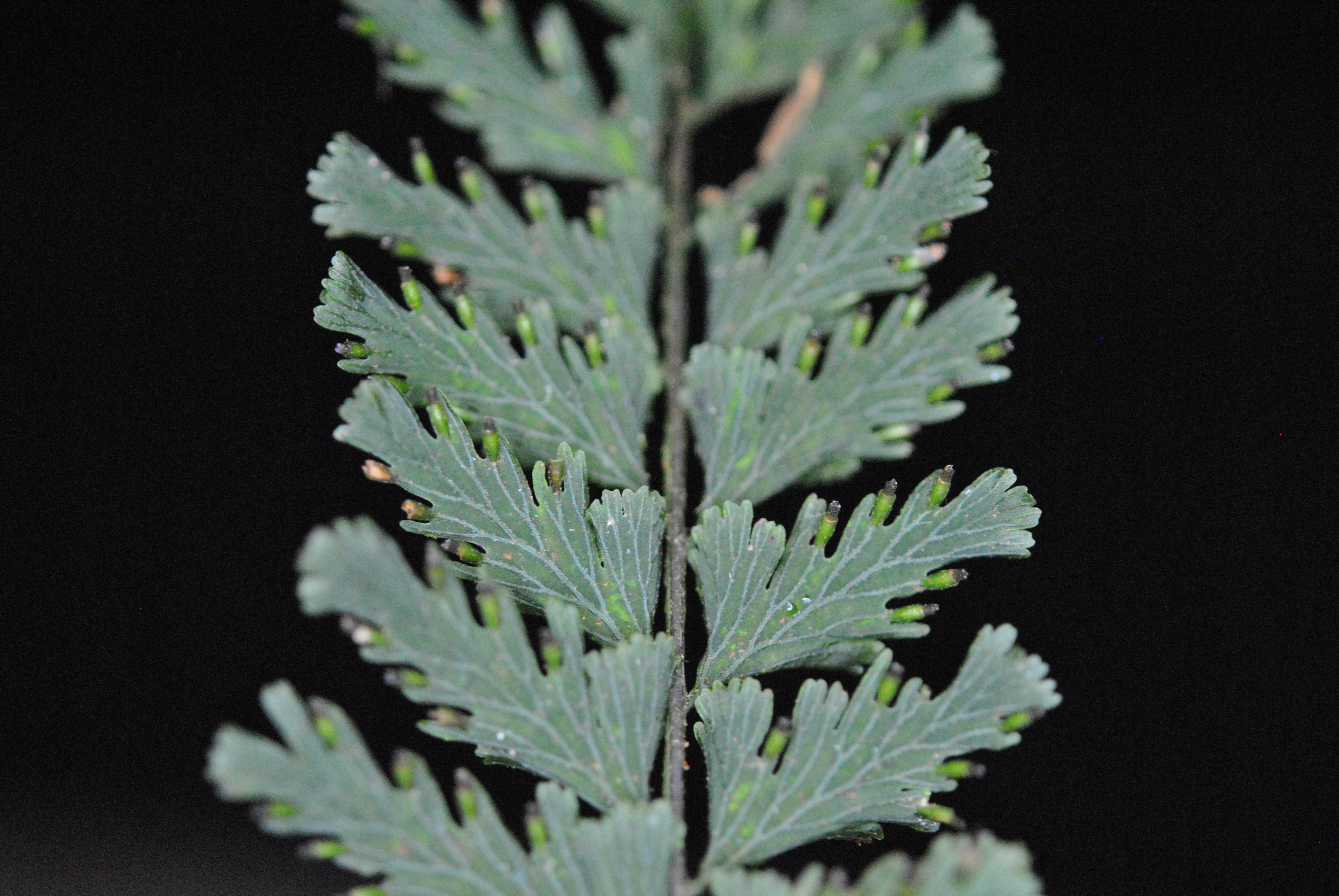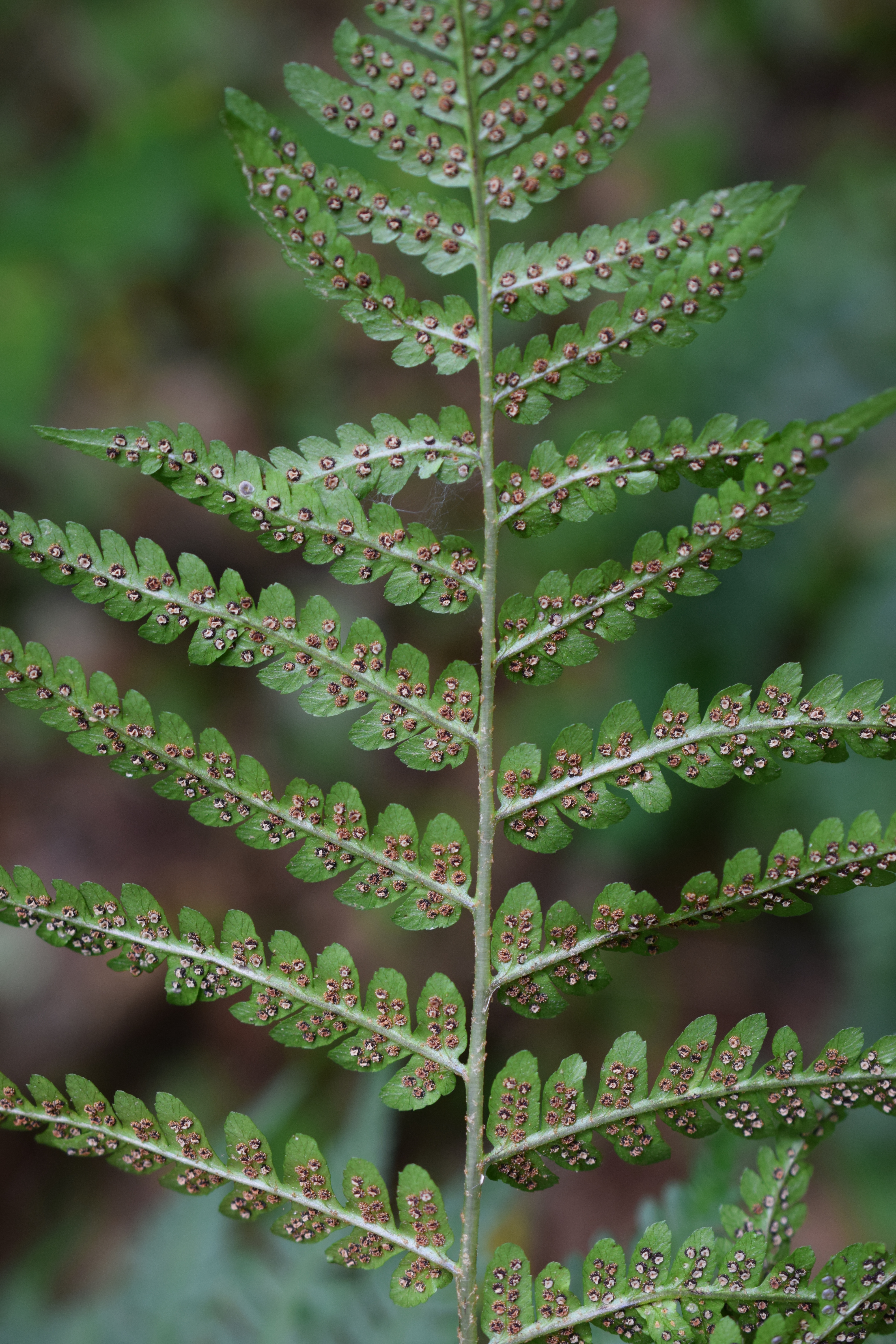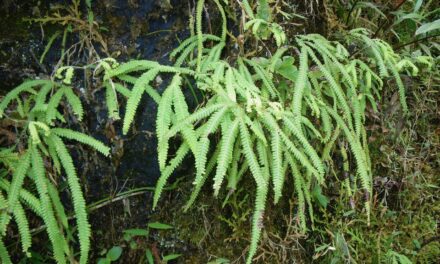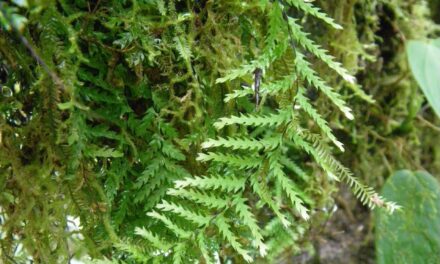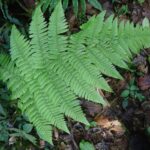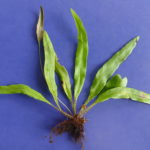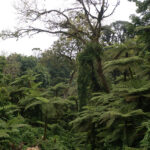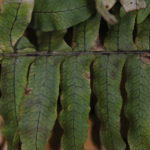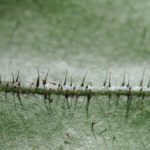Many of the most useful diagnostic characters for identifying the genera of Dennstaedtiaceae are found in the rhizome and lower petiole. In this case, the sulcate petiole base, the new rhizomes emerging from the petioles (epipetiolar buds), and the elongate stilt-roots, are diagnostic for Dennstaedtia. The study of these characters was pioneered by Hugo Navarette and Benjamin Øllgaard (2000) in their study of Ecuadorian species. Recently Triana et al. (2022) placed these characters in a phylogenetic context and used them to diagnose clades.
Navarrete, H. and Øllgaard, B., 2000. The fern genus Dennstaedtia (Dennstaedtiaceae) in Ecuador,‐new characters, new species and a new combination. Nordic Journal of Botany, 20(3), pp.319-346.
Triana-Moreno, L.A., Yañez, A., Kuo, L.-Y., Rothfels, C.J., Pena, N.T., Schwartsburd, P.B. and Sundue, M. (2022), Phylogenetic revision of Dennstaedtioideae (Dennstaedtiaceae: Polypodiales) with description of Mucura, gen. nov.. TAXON. https://doi.org/10.1002/tax.12858
Collection Data (M. Sundue 5058)
Classification & Common Names
- Class: Polypodiopsida
- Family: Dennstaedtiaceae
- Genus: Dennstaedtia Moore
- Species: Dennstaedtia cornuta (Kaulf.) Mett.
- Var./Subsp.:
- Common name(s):
General Collection Data
- Date: 24-I-2022
- Primary Collector & #: M. Sundue 5058
- Collection Party: Alejandra Vasco - Weston Testo - Sarah Morris - Susana Vega - Jonatan Castro - Verónica Bedoya - Alejandro Marín
- Det. History: M. Sundue
- Habitat: Montane forest
- Habit: Terrestrial
- Specimen Locations: BRIT, F, HUA, JAUM, VT
Additional Comments
Collection Location
- Location: Vía Jardín-Riosucio - 4 km de Jardín - a orillas de la quebrada Montecristo – – Jardín – Antioquia – Colombia.
- Coordinates: 5.5728, -75.7732
- Elevation: 2189 m

